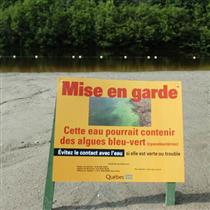 Water 'more important than oil' businesses told Looming water crisis could unravel world economy without radical action, investors told
Water 'more important than oil' businesses told Looming water crisis could unravel world economy without radical action, investors toldJuliette Jowit
Thursday 26 February 2009
Guardian
Dwindling water supplies are a greater risk to businesses than oil running out, a report for investors has warned.
Among the industries most at risk are high-tech companies, especially those using huge quantities of water to manufacture silicon chips; electricity suppliers who use vast amounts of water for cooling; and agriculture, which uses 70% of global freshwater, says the study, commissioned by the powerful CERES group, whose members have $7tn under management. Other high-risk sectors are beverages, clothing, biotechnology and pharmaceuticals, forest products, and metals and mining, it says.
"Water is one of our most critical resources – even more important than oil," says the report, published today . "The impact of water scarcity and declining water on businesses will be far-reaching. We've already seen decreases in companies' water allotments, more stringent regulations [and] higher costs for water."
Droughts "attributable in significant part to climate change" are already causing "acute water shortages" around the world, and pressure on supplies will increase with further global warming and a growing world population, says the report written by the US-based Pacific Institute.
"It is increasingly clear that the era of cheap and easy access to water is ending, posing a potentially greater threat to businesses than the loss of any other natural resource, including fossil fuel resources," it adds. "This is because there are various alternatives for oil, but for many industrial processes, and for human survival itself, there is no substitute for water." (...)






